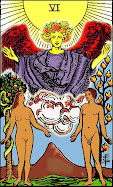Not this month dearest, we BOTH have headaches.
Kenyans may consider holding a national "no-sex" month to slow down the spread of HIV and maintain the current momentum which has seen a drop in new infections.
This is one of the innovative and less expensive methods, countries attending the 18th International AIDS Conference 2010 which opened in Vienna, Austria on Sunday, may have to consider.
First proposed by Aids researchers, Prof Alan Whiteside of the University of Kwazulu-Natalin South Africa and Dr. Justin Parkhurst of the London School of Hygiene and Tropical Medicine in the U.K. in April, the hypothesis is gaining momentum and the two will be suggesting it be put on trial.
The new proposal was first published in the Southern African Journal of HIV Medicine, in April and forms part of hundreds of proposals and researches to be discussed at the ongoing Vienna conference.
Writing of the proposal for aidsmap, one of the official online information channels for the Aids 2010 international conference Keith Alcorn says Swaziland, which has a high HIV prevalence rate is considering trying out the idea.
The researchers argue that, since newly infected people have the highest transmission rates to their partners, an abstinence period would disrupt the infection chain with significant gains in bringing down the prevalence rates.
Scientists say HIV levels are highest in first six weeks after infection. This is before the body's defense system kicks in to fight the virus. Individuals in this phase are thought to account for anywhere from 10 to 45 per cent of new HIV infections.
"Stopping large numbers of recently infected people from passing on the virus for a month could act as a "fire break," in the same way that trees are chopped down in a forest fire to break the progress of the fire," says aidsmap.
The researchers say countries may try other options depending on what is most acceptable to their people. They may try a month of protected sex for all, or no commercial sex for everybody for a certain duration.
Another suggestion would include no sex at night for a period of time for the whole population. This behavioral change options comes soon after Kenya won praise from the conference organizers, UNAids on its success in convincing the youth to adopt responsible sex.
In a pre-conference communication last Thursday, UNAids said HIV prevalence in pregnant women aged 15 to 24 fell by at least a quarter in 12 countries, with some of the steepest drops in Kenya.
"Young people have shown that they can be change agents in the prevention revolution," the agency said in its OUTLOOK Report 2010.
Talking to the Nation soon after the release of the report, Dr. Nicholas Muraguri, the director of the National Aids and Sexually Transmitted Infections Control Program, said persistent campaigns have resulted in behavior change among the youth, considerably reducing the infection rate.
He said condom use as well as voluntary counseling and testing are also on the increase because of the efforts. "There are more young people using condoms, and many more are going for HIV tests without fear.
"This has seen HIV testing rise from 35 per cent to 70 per cent in the recent past," said Muraguri as he prepared to leave for the Vienna meeting. "Unlike in the past, when men would brag about the number of women they had slept with, young people are now more cautious.”
— The Curator
Subscribe to:
Post Comments (Atom)




No comments:
Post a Comment